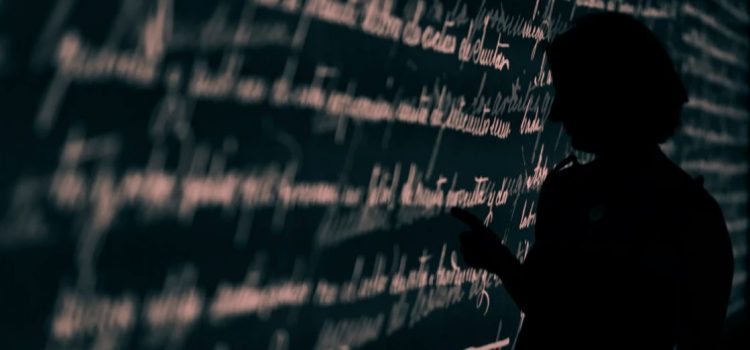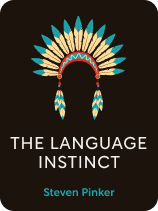

This article is an excerpt from the Shortform book guide to "The Language Instinct" by Steven Pinker. Shortform has the world's best summaries and analyses of books you should be reading.
Like this article? Sign up for a free trial here.
Is language innate, or do we learn it from our environment? Is grammar universal? What clues do certain medical conditions give us?
Steven Pinker argues in favor of the innatist theory, arguing that language is an innate, biological ability in humans. He contends that, just like the chameleon’s ability to camouflage itself or the falcon’s high-speed flight, the ability to produce and interpret complex language is an evolved human superpower.
Read more to learn why Pinker believes that language is not just an element of human culture that gets passed from person to person.
Is Language Innate?
Is language innate? Human language is a highly sophisticated form of communication. Pinker’s underlying argument is that language is a biologically derived skill and not something that is purely learned from the environment. He elaborates on this innatist theory by asserting that there are universal elements of grammar in all languages and by explaining that language is an evolutionary adaptation.
Pinker also points out medical cases where people lose their language skills but not other high-level cognitive functions, and vice versa. He suggests that these medical conditions demonstrate that there must be some language-specific physical structures in the brain.
Language Is an Evolved Trait
Pinker writes that language is a genetic adaptation that arose from natural selection in early human communities, possibly four to seven million years ago. Pinker suggests that random genetic variation might have enabled some humans to express themselves with more nuance than before, and then people with this skill were more likely to survive longer, reproduce, and pass on their language skills.
Universal Grammar
In addition to describing the evolutionary pathway for language, Pinker asserts that commonalities among all human languages support the idea that language is biologically innate. This concept is called the Universal Grammar hypothesis. According to Pinker, these universal components include subjects, objects, verbs, phrase structures, and syntax (which determines the relationships between words and phrase types). He argues that although languages seem diverse due to their variation in sounds, words, and sentence structure, the more significant feature of language is its consistent blueprint.
| Disagreement on Universal Grammar The Universal Grammar hypothesis is still contested among linguists, and its supporters disagree on what the universal parameters are. Some researchers suggest that there are up to 100 universal parameters, while others claim there is only one. Noam Chomsky, the first person to propose the Universal Grammar hypothesis, initially based his argument primarily on European languages, which are characterized by noun phrases and verb phrases. However, several languages exist that don’t include these structures, and other similar outliers have been identified for language traits that were previously considered universal. For example, the Riau Indonesian language doesn’t distinguish between nouns and verbs. In The Language Myth: Why Language Is Not an Instinct, Vyvyan Evans asserts that with a broader understanding of diverse languages, it appears unlikely that there’s any universal aspect of grammar. |
Evidence for Hard-Wired Language Skills
Pinker also supports his theory of biological language skills by describing medical case studies where general intelligence and language function are not mutually exclusive. He suggests that, if language was simply a cultural byproduct of human intelligence, then all people who have high cognitive abilities should be able to produce and interpret language. However, there are documented cases of aphasia, where brain damage leaves people unable to communicate via language but still cognitively competent at things like following verbal instructions or solving puzzles.
(Shortform note: This concept of a more modular view of linguistic ability, separate from other cognitive functions, is another contested theory in linguistics. Some researchers argue that the complex cognition involved in language processing is linked to more general skills referred to as “domain-general” abilities. These include things like the ability to update information in your working memory or focus your attention.)
On the other hand, there are people with genetic conditions such as Williams Syndrome, in which people have difficulty reasoning or forming logical statements, but their language is grammatically impeccable. Based on these examples, Pinker asserts that the ability to learn and execute grammar must be linked to genetics and innate mechanisms housed in the brain that are distinct from intelligence.
(Shortform note: Recent research challenges this idea that Williams Syndrome implies a modular view of language development that’s separate from general intelligence. For example, one researcher points out that children with Williams Syndrome experience slower cognitive development, and then this development stalls sometime around adolescence. Therefore, since young children tend to have a solid grasp of grammar and sentence structure, it’s possible that Williams Syndrome patients simply develop their language skills and intelligence up to the level of a cognitively normal child.)
Pinker writes that imaging techniques indicate multiple areas of the brain, particularly in the left hemisphere, that contribute to language processing and speech. He suggests that many interconnected areas of the brain help us with the linguistic skills described in the first section, like parsing out phrases and types of words. These brain functions result in a kind of neurological program that takes inputs from the environment and enables us to learn the specific vocabulary and rules of individual languages.
(Shortform note: Modern methods of mapping brain activity have led to more detailed insight into how humans process language. For example, researchers used to think that the part of the brain called Broca’s area was primarily responsible for speech production. However, recent research indicates that it acts as an intermediary between the part of the brain that processes incoming sensory information and other parts of the brain that control how we physically articulate speech. Researchers observed that Broca’s area is inactive while people are actually speaking but reactivates when someone starts to plan what they’ll say next.)
On this topic of the biological aspects of language, Pinker disagrees with other researchers who claim that people are born as linguistic blank slates and learn everything about language from their environment. Pinker and other proponents of the biologically innate language hypothesis use the gene known as FOXP2 as evidence for the theory. This is based on the study of a family with members who have a mutated FOXP2 gene, and as a result, struggle with basic language skills. Pinker suggests that the mutation of FOXP2—due to natural selection—contributed to language development in Homo sapiens alone.
Pinker also points out that language isn’t entirely biological: Genes encode the innate brain mechanisms, and then the environment provides inputs to those mechanisms. Together, they produce language skills.
(Shortform note: Recent research contradicts Pinker’s assertion that FOXP2 is a unique gene of Homo sapiens that enables language. DNA sequencing shows that an identical FOXP2 sequence was present around 400,000 years ago in the common ancestor of Homo sapiens and Neanderthals. So while it may be true that language is unique to Homo sapiens, the underlying role of genetics in language abilities is still unclear.)

———End of Preview———
Like what you just read? Read the rest of the world's best book summary and analysis of Steven Pinker's "The Language Instinct" at Shortform.
Here's what you'll find in our full The Language Instinct summary:
- How language is an innate ability—not an element of culture
- A look at unique qualities of human language
- How slang enhances a language, rather than diminishing it






